About
We are chemists, physicists, mathematicians, engineers, biologists who work alongside to design bionic units that mimic specific biological functions and/or introduce operations that do not exist in Nature. We apply a constructionist approach where we mimic biological complexity in the form of design principles to produce functional units from simple building blocks and their interactions. We called such an approach: Molecular Bionics.
We are engaged in several activities involving the synthesis and characterisation of novel hierarchal materials whose properties are the result of the holistic combination of its components:
Molecular Engineering
We combine synthetic and supramolecular chemistry to tune inter/intramolecular interactions and self-assembly processes to form dynamic soft materials whose molecular, supramolecular and mesoscale structures are tuned and fit for the final application (pictured right: molecular engineering of nanoscopic structures starting from molecule passing to polymers and finally to supra molecular structures).
Physical Biology
Our materials are designed to interact with living systems and thus its biological activity is studied in high detail. We have developed and established new methodologies to study living systems and how synthetic materials interact with them combining holistically physical and life sciences (Physical Biology).
Synthetic Biology
Both know-hows are applied to study biological organisation and complexity creating synthetic surrogates that act as models, as well as to engineer novel sophisticated ways to interact with living organisms.
Somanautics
In analogy to medical bionics, where engineering and physical science converge to the design of replacement and/or enhancement of malfunctioning body parts, we take inspiration from viruses, trafficking vesicles and exosomes to apply molecular engineering to create nanoscopic carriers that can navigate the human body (Somanautics) with the final aim to improve drug delivery or create new diagnostic tools.
Visit our external website to find out more.
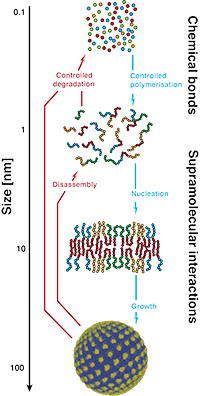


Staff
Giuseppe Battaglia
Projects
| INTERNATIONAL GRANTS | FINANCER | PI |
|---|---|---|
| CheSSTag · Chemotactic Super-Selective Targeting of Gliomas (2020-2023) | European Comission / ERC-CoG | G. Battaglia |
| NATIONAL PROJECTS | FINANCER | PI |
|---|---|---|
| BrainPePN · Nanomedicinas de precisión que penetran el cerebro (2021-2024) | MICIU / Retos investigación: Proyectos I+D | G. Battaglia |
| FUNDRAISING PROJECTS | FINANCER | PI |
|---|---|---|
| A por la COVID-19 (2021-2022) | IBEC / Faster Future 2020 | G. Battaglia |
Publications
Equipment
- State-of-the-art facilities for cell culture including 5 class A cell cabinets: one dedicated for LPS and RNAse free cell culture and one dedicated for infected tissues
- Fluorescence Activated Cell Sorting (FACS)
- Confocal microscope to perform live cell 4D imaging
- Thermocycler
- Real-time PCR
- Automated Western Blot
- Gel Permeation Chromatography
- High-Performance Liquid Chromatography
- Ultra Performance Liquid Chromatography equipped with fluorescence, UV/Vis and Infrared and light scattering detectors
- Dynamic light scattering unit
- Nanoparticle tracking analysis
- UV and Fluorescence spectroscopy
- Automated liquid handling units
- Nanoparticle production units
Collaborations
- Xavier Salvatella
IRB Barcelona - Francesca Peiro
Physics-University of Barcelona - Kostas Kostarellos
Life Science- University of Manchester/ICN2 - Giorgio Volpe
Chemistry-UCL - Simona Parrinello
Cancer Institute -UCL - Finn Werner
Structural Biology -UCL - Nick Lane
Evolutionary Biology -UCL - Darren Hargraves
Pediatric Neuro-Oncology -UCL - Timothy McHugh
Clinical Microbiology =UCL - Sebastian Brander
Neurology -UCL - Joan Abbott
Physiology -King’s College London - Molly Stevens
Bioengineering -Imperial College London - Stefano Angioletti-Uberti
Materials Science -Imperial College London - Ricardo Sapienza
Physics -Imperial College London - Daan Frenkel
Chemisty-University of Cambridge - Charlotte Williams
Chemistry -University of Oxford - Francesco Gervasio
Pharmacology -University of Geneve/UCL, UK - Francesco Stellacci
Bionegineering -EPFL Switzerland - Tambet Tessalu
Cancer Biology -University of Tartu (Estonia)/ Sanford Burnham Prebys Medical Discovery Institute - Darrel Irvine
Bioengineering -MIT - Xiaohe Tian
Life Sciences University of Anhui - Yupeng Tian
Chemistry University of Anhui - Lei Luo
Pharmacy -Southwest University, China - Kai Luo
HuaXi hospital Sichuan University - Darren Hargrave
Great Ormond Street Hospital, UCLH London - Sebastian Brander
Queen Square National Centre for Neurology, UCLH London
News
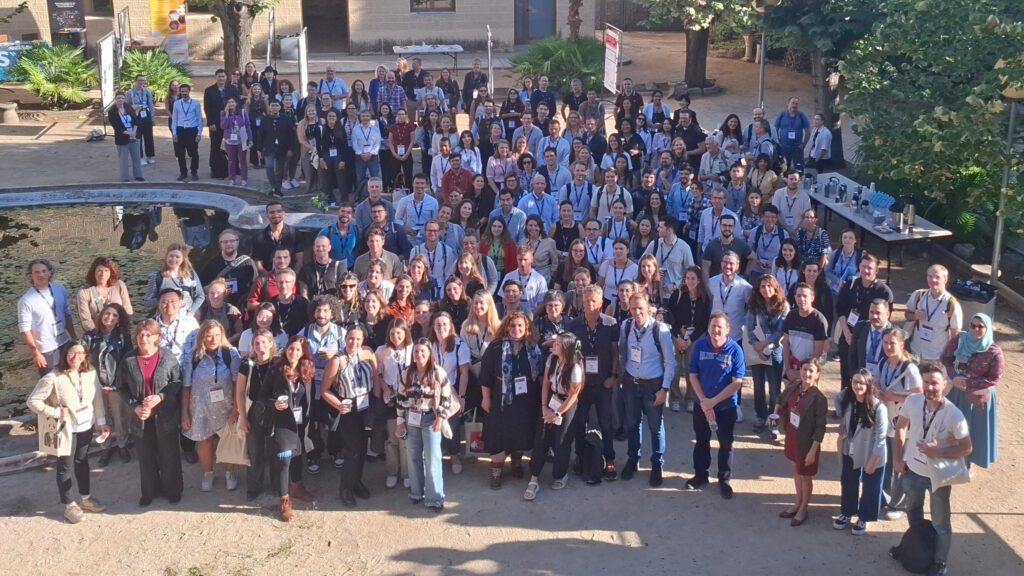
IBEC and IQS host the 2nd Barcelona Blood-Brain Barrier Conference
The event, jointly organised by the Institute for Bioengineering of Catalonia (IBEC) and the Institut Químic de Sarrià (IQS), brought together leading scientists from around the world to discuss the latest advances in blood-brain barrier (BBB) research, from its fundamental biology to its role in disease and therapeutic strategies.
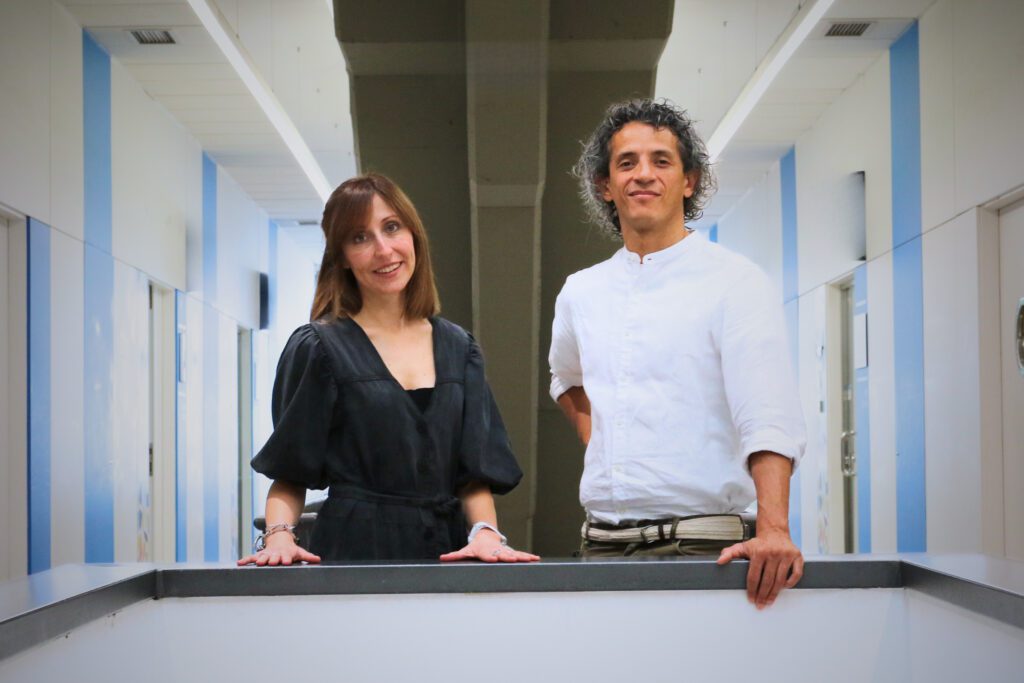
IBEC to lead two biomedical projects under the CaixaImpulse programme
Anna Lagunas and Daniel González-Carter, who are both senior researchers at the Institute of Bioengineering of Catalonia (IBEC), will be leading these projects as part of the 2025 edition of the programme. This initiative by the “la Caixa” Foundation aims to accelerate the commercialisation of biomedical innovations to make them available to patients who need them more quickly. The two IBEC projects focus on treating diseases that affect the brain.
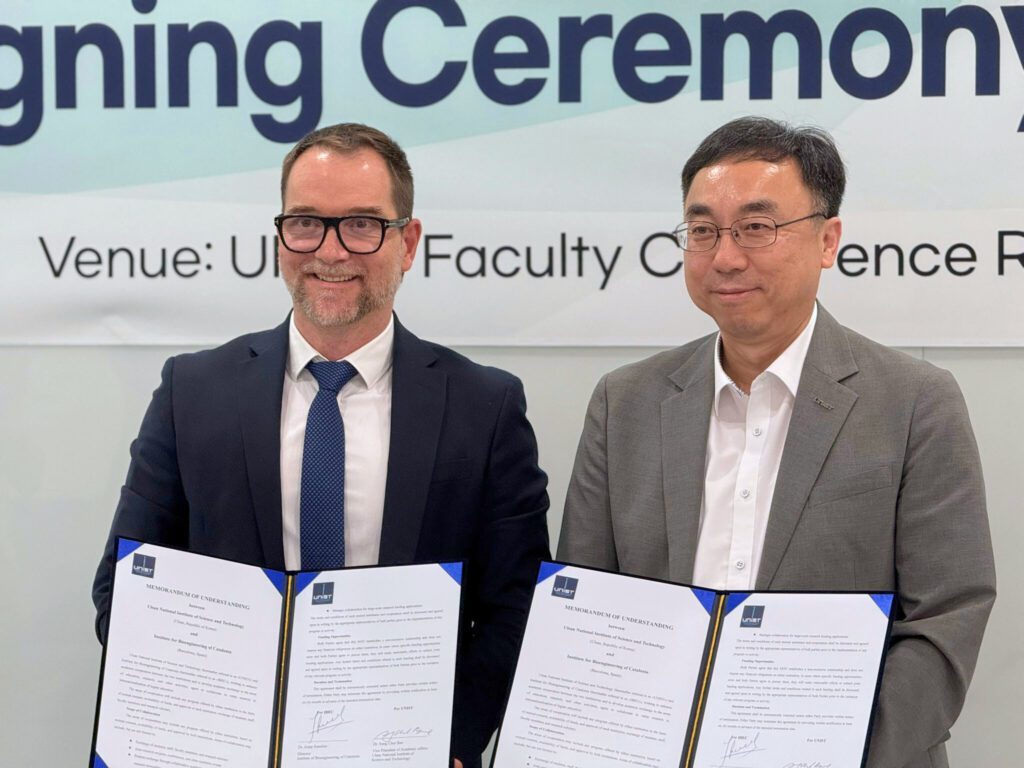
IBEC and UNIST Host Forum on Next-generation Bioengineering to Strengthen International Collaboration
Today took place the Forum on Next-generation Bioengineering organized by the Institute for Bioengineering of Catalonia (IBEC) and Ulsan National Institute of Science & Technology (UNIST) in South Korea. The event highlighted cutting-edge research in bioengineering and reinforced the collaborative ties between the two institutions.
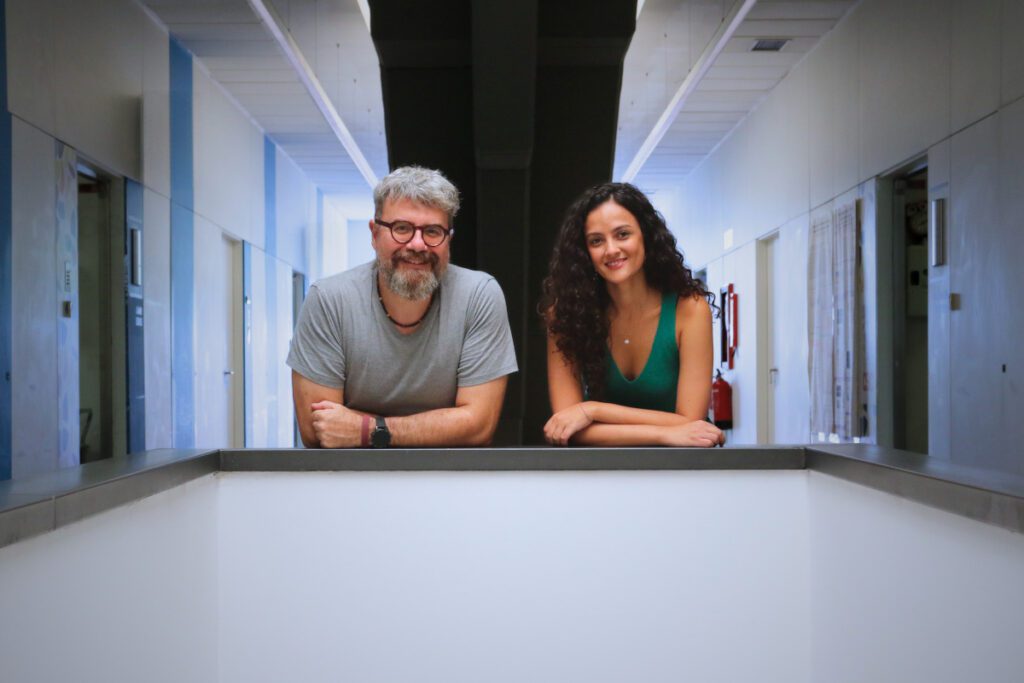
Scientists create an artificial cell capable of navigating its environment using chemistry alone
Researchers at the Institute for Bioengineering of Catalonia (IBEC) have created the world’s simplest artificial cell capable of chemical navigation, migrating toward specific substances like living cells do. This breakthrough, published in Science Advances, demonstrates how microscopic bubbles, called vesicles, can be programmed to follow chemical trails. This breakthrough reveals the bare essentials needed to make synthetic life move with purpose. Decoding how vesicles navigate reveals how cells communicate and transport cargo, and provides a blueprint for engineering targeted drug delivery systems
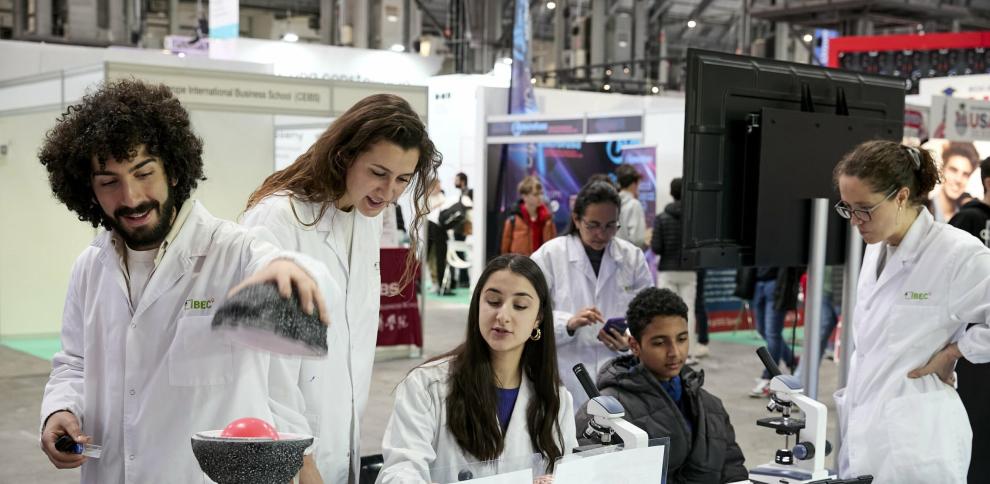
Una inmersión en la ciencia para fomentar vocaciones STEAM
El EspaiCiència se consolida como un referente en la divulgación científica dentro del Saló de l’Ensenyament, y proporciona a los jóvenes herramientas y conocimientos para adentrarse en el mundo de la ciencia y la tecnología
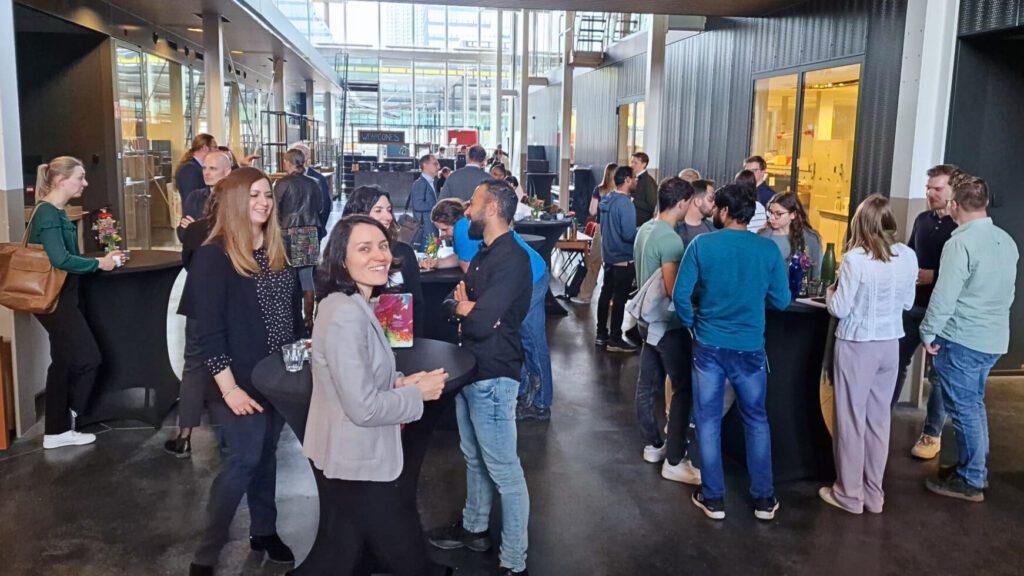
IBEC and ICMS meet again in Eindhoven for their annual joint symposium
The joint ICMS-IBEC-MPIP symposium took place today, 24 March. The event was jointly organised by the Institute for Bioengineering of Catalonia (IBEC), the Institute for Complex Molecular Systems (ICMS) and the Max Planck Institute for Polymer Research (MPIP). During the day, researchers from the three centres presented their areas of research, with the aim of strengthening the scientific relations between the institutions.
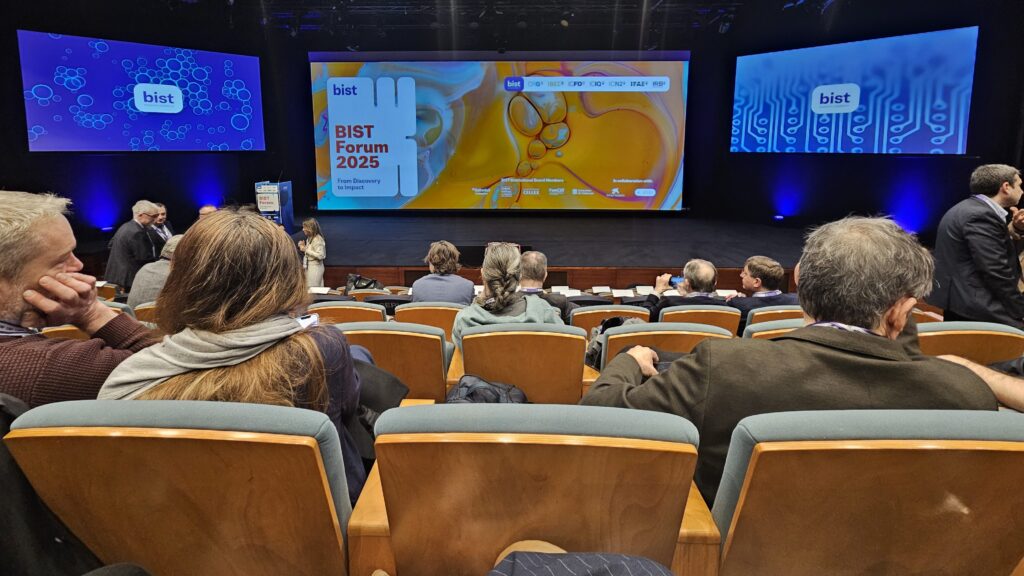
IBEC stands out at BIST Forum with 4 BIST Ignite projects and a BIST Ignite Award
Today, the BIST Forum, an event that brings together the BIST scientific community, focused this year on the joint initiative of the seven CERCA centres to promote precision medicine in healthy ageing. During the event, the new BIST Ignite projects to promote multidisciplinary research were announced, with IBEC involved in four of the five selected projects. In addition, one of the projects in which IBEC is involved won a BIST Ignite Award.
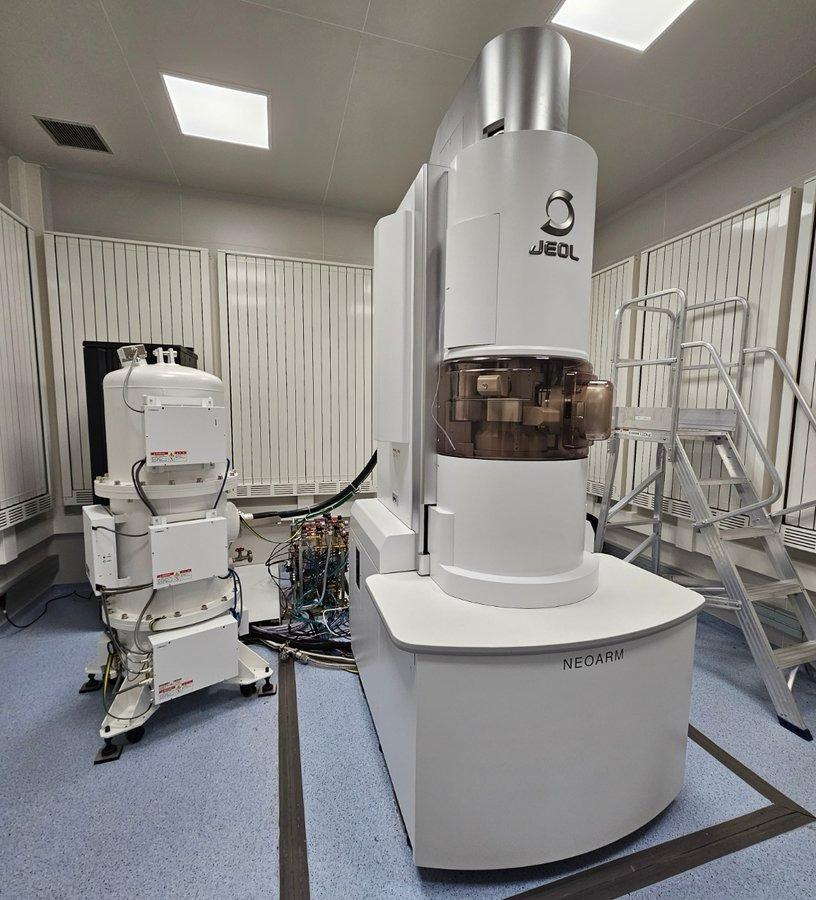
IBEC co-funds new state-of-the-art electron microscope
The President of the Catalan Government, Salvador Illa, and the Catalan Minister for Research and Universities, Núria Montserrat, inaugurated this unique infrastructure at the Barcelona Science Park today. The microscope, funded by IBEC and FEDER*, opens the door to the reconstruction of biomolecules and viruses in three dimensions, among other applications.
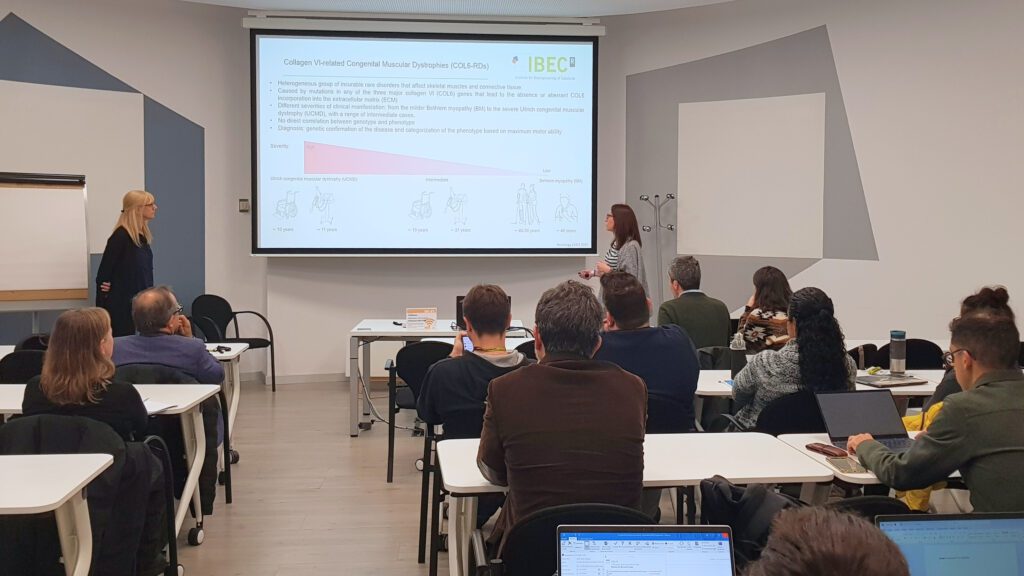
IBEC and SJD Barcelona Children’s Hospital strengthen their collaboration with a day of translational innovation
The Institute for Bioengineering of Catalonia and the Sant Joan de Déu Barcelona Children’s Hospital have held a joint conference to strengthen collaboration in bioengineering and translational medicine. The event, held this morning at the IBEC, highlighted innovative projects, presented a joint PhD programme and encouraged the exchange of ideas between researchers from both institutions.
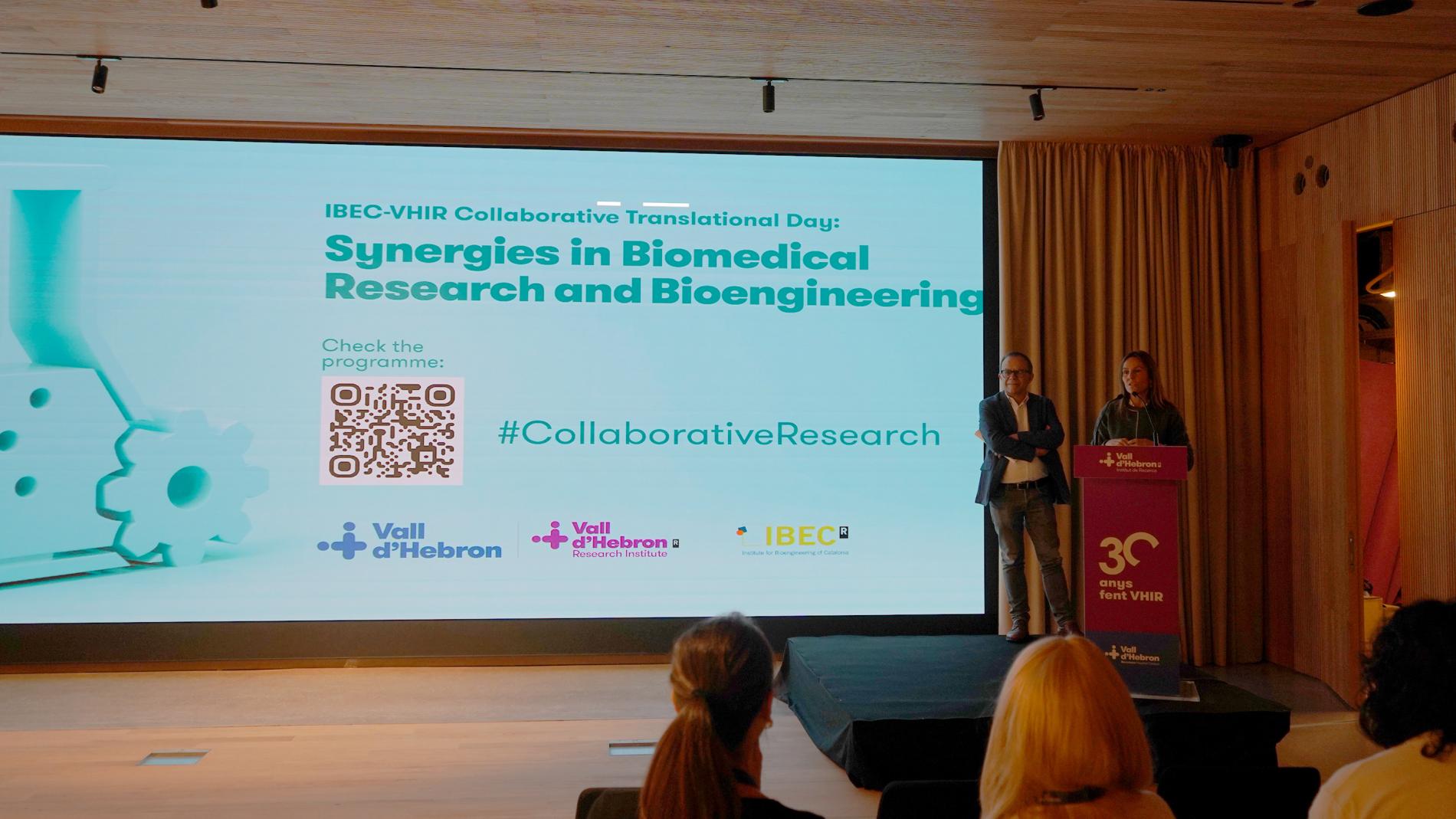
IBEC and VHIR hold a collaboration day to promote synergies
The 1st Translational Collaboration Day between the Vall d’Hebron Institute of Research (VHIR) and the Institute of Bioengineering of Catalonia (IBEC), held on 21st November, was an opportunity to learn about the projects and research lines of both institutions and to promote interaction between professionals.
Jobs
Senior Translational Material Scientist/Chemist at the Molecular Bionics Group (STM_GB)
Ref: STM_GB // Deadline: 31/08/2023
Predoctoral researcher at the Molecular Bionics Research Group
Ref.: PhD-GB // Deadline: 18/02/2023
Senior researcher at the Molecular Bionics Research Group (SRR_GB)
Ref: SRR_GB // Deadline: 16/01/2023
PhD Student at the Molecular Bionics Research Group
Application Deadline: 17/10/2021Ref: PhD_IB The Molecular Bionics group at the Institute for Bioengineering of Catalonia (IBEC) is looking for PhD student to work on the development of targeted nanotherapeutics for drug delivery with a focus on infectious diseases and cancer. The project will be jointly supervised by Dr. Iris L. Batalha (La Caixa Junior Leader Fellow) and Prof. Giuseppe Battaglia. We are looking for a Chemistry/ Bioengineering/ Biotechnology graduate to work on an interdisciplinary project at the interface of chemistry and biology. The project will include the synthesis and functionalisation of polymers and assembly into nanoparticle delivery systems, protein expression and purification, generation of peptide ligands by phage display, and evaluation of targeted nanoparticles in vitro for applications in the treatment of infectious diseases and cancer.

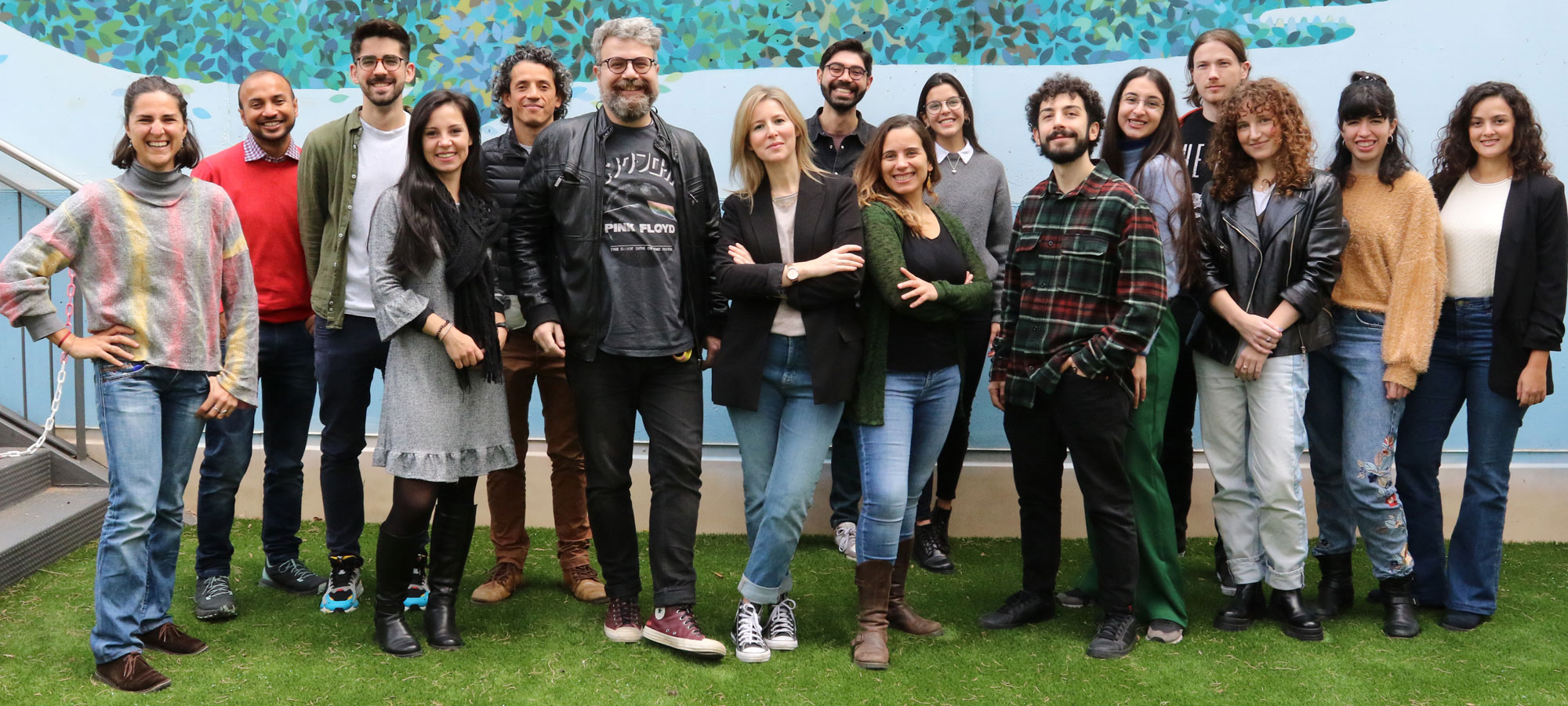
 ibecbarcelona.eu
ibecbarcelona.eu